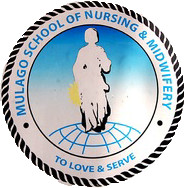This course content aims to provide undergraduate nursing students with a solid foundation in neonatal nursing, covering both theoretical and practical aspects. It is important to tailor the content to meet the specific requirements and guidelines of the educational institution offering the program.
Course Objective
Upon completion of the course, the student should be able to:
Upon completion of the course, the student should be able to:
Course Objective
- To identify the developmental milestones of neonates and management of their conditions.
- To demonstrate the management of pediatric conditions
Upon completion of the course, the student should be able to:
- Apply the knowledge and Nursing skills in the delivery of child health care to neonatal and their relatives.
- Distinguish culturally sensitive effective communication strategies when interacting with the pediatric patients of various ages, their families, and members of the health care team.
- Assess the provision of safe and effective care to neonatal patients and their families in a variety of settings.
- Appraise appropriate assessment data needed to provide caring interventions that promote general health of patients in meeting their needs at each stage of childhood, across the wellness-illness continuum.
- Determine the availability of existing programs needed to manage the care of the pediatric patient in collaboration with other health team members.
Upon completion of the course, the student should be able to:
- Integrate Nursing knowledge in the delivery of neonatal care.
- Determine the availability of existing programs needed to manage the care of the pediatric patient in collaboration with other health team members.
- Apply Nursing skills in the delivery of child health care within homes and communities.
- Distinguish culturally sensitive effective communication strategies when interacting with the pediatric patients of various ages, their families, and members of the health care team.
- Critically think about the provision of safe and effective care to pediatric patients and their families in a variety of settings
- Distinguish appropriate assessment data needed to provide caring interventions that promote general health of patients in meeting their needs at each stage of childhood, across the wellness-illness continuum.

